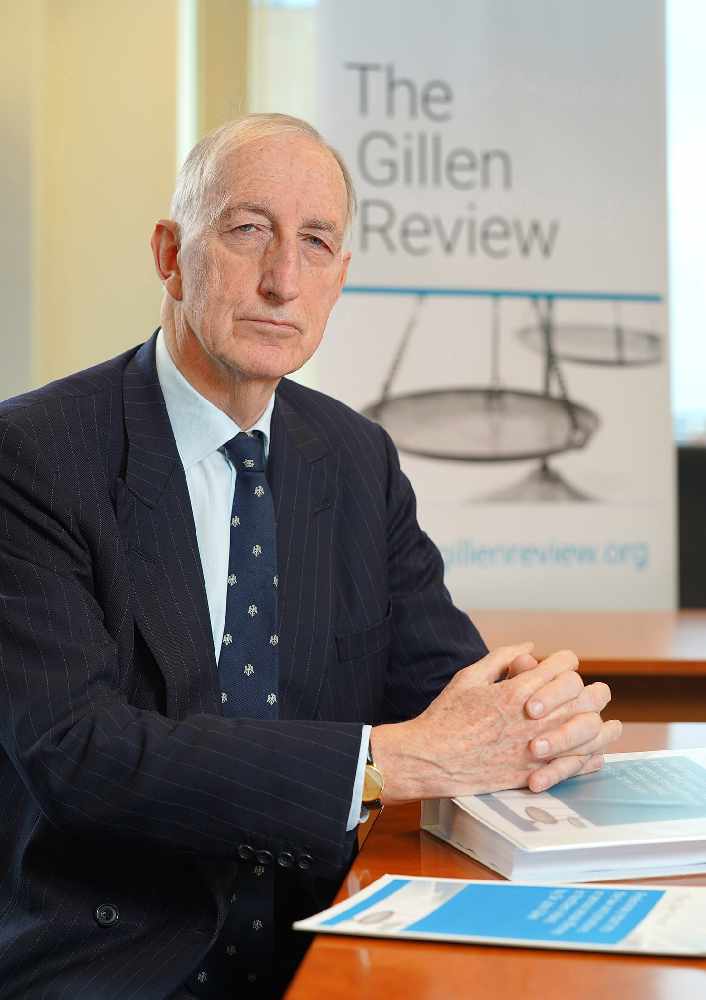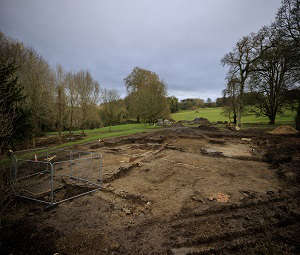
By Aoife Moore
A review of how Northern Ireland's justice system deals with serious sexual offences has recommended banning the public from trials.
The Gillen Review, which commenced in May last year, is an independent review of how courts are set up to deliver justice in serious sexual offence cases.
A former Lord Justice of Appeal, the Right Honourable Sir John Gillen, led the review, supported by an advisory panel.
The most notable recommendation was that in order to protect the complainant in these cases, the public should be banned from attending trials.
The families of those involved would still be allowed to attend, along with members of the press, to act as the eyes and ears of the public.
Sir John first outlined the proposal in his preliminary report in November. Following a public consultation exercise, it has now been retained as a key recommendation in his final report.
"I have spoken to maybe 35 to 40 complainants, who have been through the system, and that sense of public humiliation, in a small place like Northern Ireland, where everybody knows everybody - even if you get a few people attending trials in local areas such as Strabane or Newry or Derry, it's like putting it in the paper," Justice Gillen said.
"Everybody knows everyone, and the legal right to have anonymity completely disappears.
"Secondly, this is the most intimate personal details of their lives, they're at their most vulnerable moment when they are explaining these things, and to do it in front of the cruel gaze of the public is one of the reasons why we have such few people coming forward to report these offences.
"It's not the only reason, but it's an important one."

The overall conviction rate at the Crown Court for serious sexual assault cases dropped from 73.8% in 2016/17 to 63.8% in 2017/18.
By comparison the Public Prosecution Service's overall conviction rate for all offences in Crown Court is 85%.
Justice Gillen says that due to the nature of the offences, conviction rates may never be extremely high.
"In serious sexual offences where it's one word against the other, there's usually no witnesses, no forensics, neither of those involved have ever been in trouble before, you're always going to get a high bar set for conviction, all of those will always create a problem.
"With matters such as a rape, social media and other influences can influence the way juries look at these matters."
The longest chapter in the Gillen Review, with the most recommendations made on one topic, concerns social media, which Justice Gillen says poses a real threat of polluting justice.
"Jurors are hearing and reading matters that they should not be and the idea of protecting the anonymity of the complainant disappears.
"The chances of the jury hearing completely prejudicial material is also something we have to address," he said.
"Even if it's only two or three jurors hear this, that is enough to pollute the stream of justice, so I've made a huge number of recommendations about that.
"If we keep the public out, apart from members of the press and the families of the complainant and accused, that will control to some extent the flow of social media information."
A public consultation for the review engaged with more than 200 organisations and individuals, including victims, human rights groups, the judiciary, the Police Service of Northern Ireland, those with legislative responsibility for justice and the law, and those with an academic view.
The team also conducted extensive research in Northern Ireland supported by the experiences of 16 countries and various jurisdictions across Europe, the US, South Africa, Australia and New Zealand.
Justice Gillen added that his team had received 150 extensive written submissions, more than 400 respondents to an online survey and extensive public and media interest.
The report has made 16 key recommendations covering more than 200 separate points, 75% of which do not involve legislative change, however some could be held up due to the suspension of the Assembly.
"The public has spoken and what they are saying, very loudly and very clearly, is that now is the time for radical improvement in the way our justice system deals with serious sexual offences," Justice Gillen added.
The recommendations have been presented to the Criminal Justice Board.


 13 year boy dies following quad bike crash near Newry
13 year boy dies following quad bike crash near Newry
 Man appears in court charged over head-on collision which killed father and son
Man appears in court charged over head-on collision which killed father and son
 Remains of 300-year-old building complex unearthed by chance on country estate
Remains of 300-year-old building complex unearthed by chance on country estate
 Fresh Met Office warning for icy conditions across Northern Ireland
Fresh Met Office warning for icy conditions across Northern Ireland
 Community still in shock over deaths of father and son, funeral told
Community still in shock over deaths of father and son, funeral told